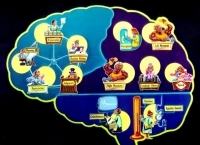
This white paper is the second of three parts on the complex functions of brain, what happens when an injury is acquired and how to care for and manage a life-changing brain injury.
BY LINDA SIMMONS, RN BScN
Consultant and Cost of Future Care Expert, Connect Medical Legal Experts
TBI refers to any injury to the scalp, skull (cranium or facial bones) or the brain. Injury to the brain can be focal or diffuse. Focal injuries result in contusions, lacerations, or hemorrhages. The hemorrhages that can occur are epidural hematoma, subdural hematoma, intracerebral hematoma, and subarachnoid hemorrhage. The diffuse injury can cause a mild to severe concussion or diffuse axonal injury.

